“Gross Domestic Product has now become a fetish,” according to economist Raj Patel. Many undesirable things end up adding to GDP: wars, disease, and environmental destruction, for example. Meanwhile GDP fails to measure many desirable indicators of community health. It has led us to live in an ecologically and socially unsustainable fashion. Are you enjoying tapping the brightest minds on the planet? Want to continue to have this kind of access? Join the community of Conversation Earth fans pitching in…
Tag Archives GDP
Human civilization can thrive while living within sensible limits imposed by a finite system. “Renegade" economist Kate Raworth manages to tell the truth about what we’re getting wrong in economics, while at the same time inspiring activism and optimism. In this conclusion of a two-part interview, Kate finishes her list of seven fundamentals to achieving a healthy 21st century economy. Her recently published book, Doughnut Economics: Seven Ways to Think Like a 21st-Century Economist, was called “brilliant, thrilling and revolutionary”…
What exactly are “think tanks” supposed to be thinking about? Are some of them part of a campaign to cast doubt on science when it could interfere with profits? Author Kerryn Higgs recounted the growth-seeking activities of the corporate world in her book, Collision Course: Endless Growth on a Finite Planet. Her research reveals think tanks, industry associations, and even university economics departments all play a role in advancing and preserving our society’s commitment to growth above all else, even…
How and why did our society come to value economic growth so highly that we pursue it at the risk of our long-term survival? For some time scientists have warned that human civilization is living beyond the ecological means of our planet. Yet our commitment to economic growth is unwavering. Australian writer Kerryn Higgs chronicled this triumph of denial over science in her book, Collision Course: Endless Growth on a Finite Planet. This book is impressively researched. She shares her…
We’re not living on Earth as if we want to stay, observes Mike Nickerson. In our last episode, Mike Nickerson shared his vision for, and the joy of, making the cultural shift necessary for a sustainable human civilization. In this continuation of the conversation, we explore some of the forces keeping our system stuck in an unsustainable mode. Nickerson leads the Sustainability Project/7th Generation Initiative in Canada, a non-profit organization that collects, studies, develops and teaches ideas, information, technologies and…
“We could be having so much fun that there just isn't time to consume resources on a quantity, or produce waste on a quantity that would be problematic for the planet,” according Mike Nickerson. He shares his ideas about how enjoyable it could be to make the cultural shift necessary for human civilization to be sustainable. Mike Nickerson has spent his career advancing sustainability. In the 1970s he founded and co-directed the Institute for the Study of Cultural Evolution. Today…
How can policymakers be persuaded to abandon the most widespread public policy goal on Earth? In our last episode, Brian Czech explained that economic growth cannot be sustained perpetually on a finite planet. This episode continues that conversation with the conservation biologist and economics expert. Here, he explains why pro-growth economists proliferate, and offers his prescription for making the shift to a steady state economy. Brian Czech is founder and president of the Center for the Advancement of the Steady…
Economic growth is the number one public policy goal around the world, yet our pursuit of growth is “pulling out the rug from our own kids’ and grandkids’ future,” according to Brian Czech, founder and president of the Center for the Advancement of the Steady State Economy. He wants us to understand economic growth is physically impossible to sustain on a finite planet, it’s depleting nonrenewable natural resources and degrading or eliminating crucial habitat for other species. Czech authored Shoveling…
While world leaders wring their hands over forecasts of timid GDP growth, a growing list of visionaries around the world are collaborating to redefine economic objectives in a more meaningful and sustainable way. Former White House advisor Gus Speth has been at the forefront of new economic thought for decades. His prescription for change is not a bunch of economic mumbo-jumbo for boards and bankers. His ideas reach deep into the way we conduct our personal lives. We need to…
“Gross Domestic Product has now become a fetish,” according to economist Raj Patel. Many undesirable things end up adding to GDP: wars, disease, and environmental destruction, for example. And GDP fails to measure many desirable indicators of community health. It has led us to live in an ecologically and socially unsustainable fashion. No one wants to live in the Stone Age, no one wants to live in a time with bad medical care, no one wants to live in a…

